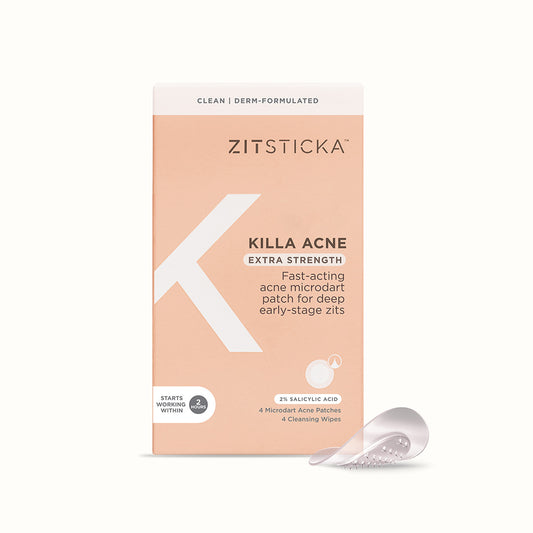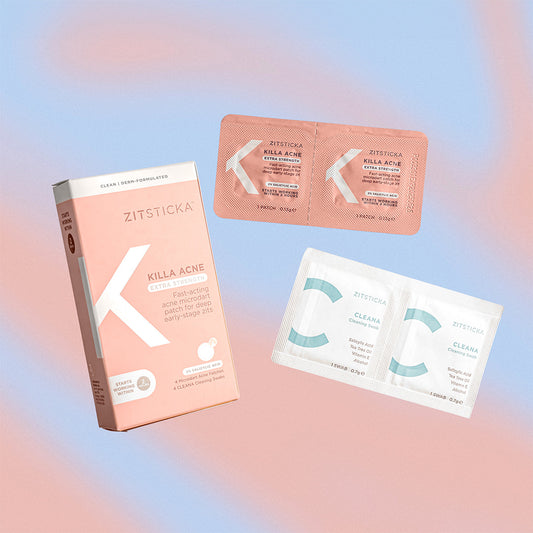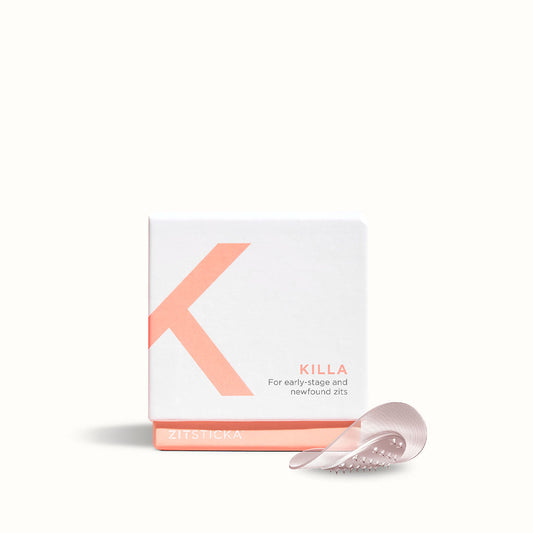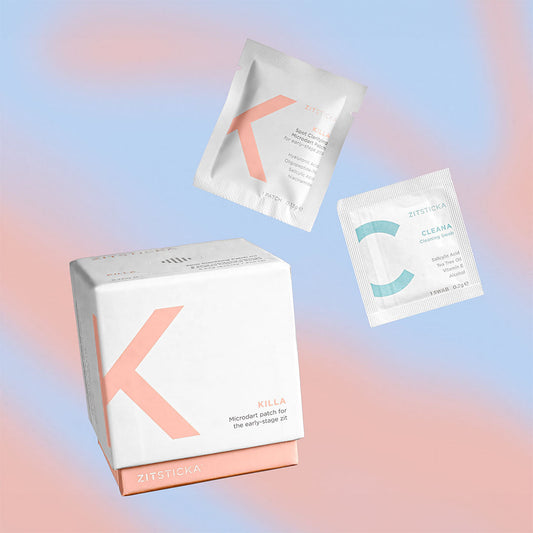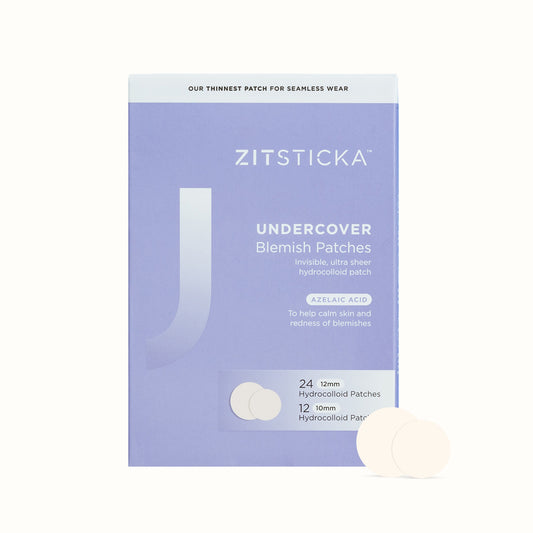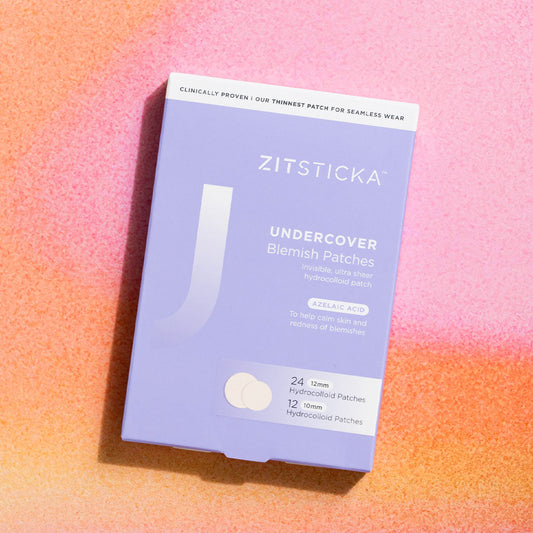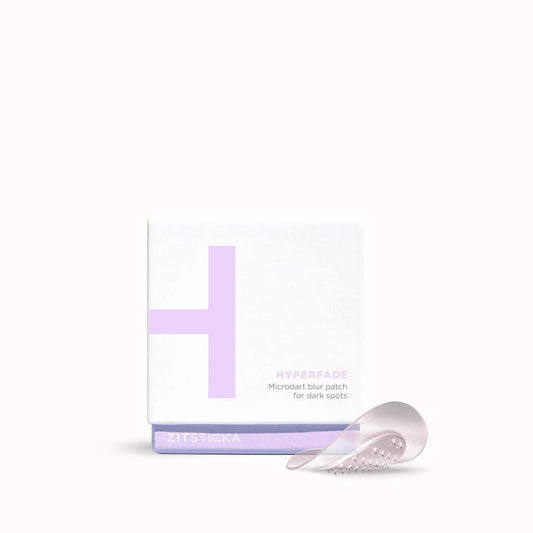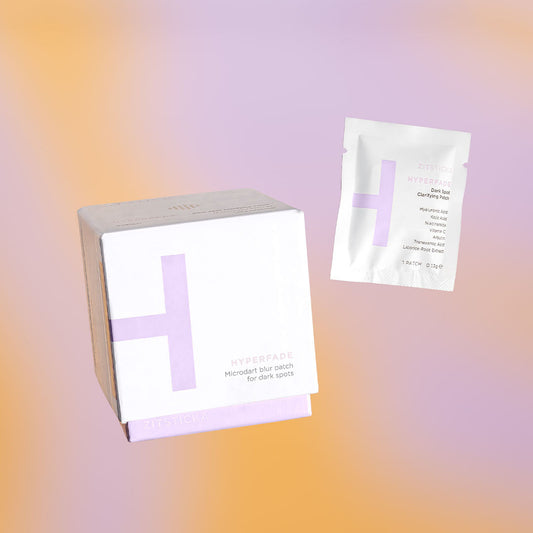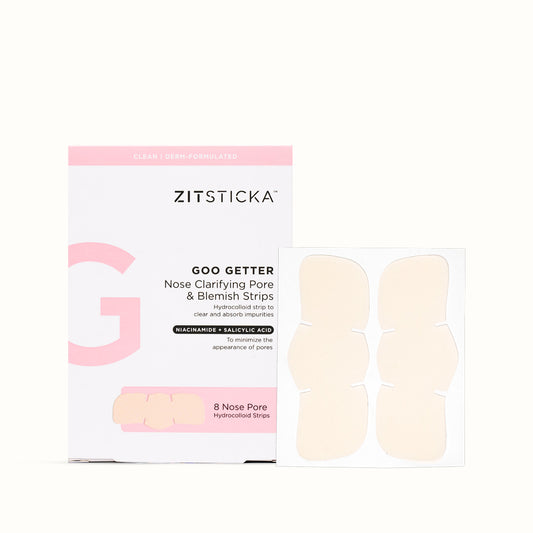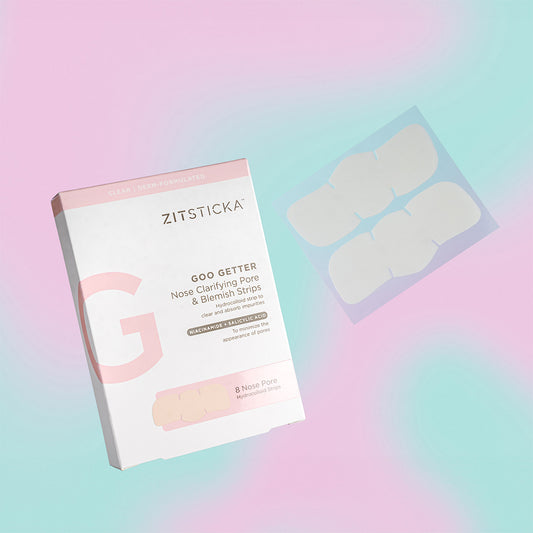I didn’t really gel with the phrase ‘You are what you eat’ until I reached the latter half of my 20s. Before then, my efficient metabolism, strong collagen count and infallible immune system worked in harmony to ensure that no matter what I nibbled or sipped on, my skin would wake up fresher than a dew-soaked daisy, day in, day out. I can’t speak for what was going on inside my body during this period, but from the outside, it appeared as if everything was A-OK.
Cut forward to now, and those five little words have become something of a daily reminder for me to treat my body like the sacred temple that it is. Reaching into the fridge for another sliver of goats cheese? My inner critic taunts. Do you not remember how your skin buckled under the heft of that fromage board last weekend? Aren’t you still applying concealer to the rash that spread down your chin as a result of the ‘baguette a day’ habit you picked up in France?
While I’m not lactose intolerant, evidence would suggest that my skin and dairy are not friends. And, regretfully, the same goes for bread. But, it’s hard to self-diagnose—there’s a lot of conflicting information swirling around the internet about the effects of gluten and dairy on the skin, and there’s a whole host variables that could contribute to my skin drama.
All the sleuthing was making me dizzy, so instead of settling on flimsy answers, I decided to lean on the expertise of Emma Hobson, The International Dermal Institute’s Education Manager. From the effects gluten and dairy have on different skin types, to all the bad stuff we should be avoiding and all the good stuff we should be incorporating into our diet, Hobson shares the skin tea.
The effect of gluten on different skin types…
“For those with Celiac disease and gluten sensitivity about a quarter of them may suffer from a sensitive, red, itchy, stinging skin condition called Herpetiformis dermatitis. This appears normally in the same place on the body and is common on the elbows, knees, back and back of the neck. Some people who suffer from Psoriasis and Eczema also find that digesting gluten cause their skin condition to flare. There is no clear medical research but some practitioners also believe that gluten can be a trigger for some people who suffer from acne.”
And dairy…
“Though there is no clear clinical evidence with regard to the effect dairy has on the skin, there has been much reported on how skimmed milk (due to it having a higher sugar /GI and Insulin Growth Factor (1IGF-1) content) can irritate and stimulate acne prone skin. There is also a theory that because cow’s milk (even organic) contains hormones, (including androgens, the male hormones found in both male and female bodies, and growth factors), which can be absorbed into the body it may affect the skin and be a trigger for those prone to acne breakouts in the same way as human hormones act as a trigger. There are many people who have found cutting out dairy makes a vast improvement on their acne skin condition.”
The worst foods and lifestyle factors for our complexion…
“Avoid processed and sugary or sweet foods where possible, especially food with a high glycemic index such as white bread, pasta and white rice which all make the blood sugar levels rise quickly. Avoid chocolate for those that recognize it as a trigger, due to the stimulating effect it has on acne prone skin. For example, milk chocolate has some ingredients in it, like caffeine and its cousin theobromine, which may exacerbate acne and are believed to have pore-clogging properties. Avoid eating too many saturated fats. Moderate your intake of Omega-6 fatty acids like soy and corn oils, as they have been linked to increased levels of inflammation in the skin.”
Vitamin A and beta-carotene in foods
“A whole food diet with plenty of fresh veggies is fabulous for healthy glowing skin. Eat foods rich in essential fatty acids, such as fish, nuts, oils and avocado as these will help to give you naturally moist, supple and nourished skin. Vitamin A is an essential nutrient for healthy skin. Vitamin A is found in beef, calf, and chicken liver; eggs; fish liver oils; and dairy products, including whole milk, whole milk yogurt, whole milk cottage cheese, butter, and cheese. Plants contain carotenoids, some of which are precursors for vitamin A found in yellow and orange vegetables. Green vegetables also contain carotenoids. Recent evidence points to a role of beta-carotene in protecting the skin from sun damage. By eating beta-carotene rich foods, you can increase levels of vitamin A in your body."
Zinc and Vitamin C in foods
Zinc (a standout ingredient in our acne-specific supplement, SKIN DISCIPLINE) and Vitamin C are considered to help support the immune system to improve the body’s healing capacity as well as skin tone. Excellent food sources of Vitamin C include broccoli, bell peppers, parsley, brussel sprouts, cauliflower, lemon juice, strawberries, kiwifruit, papaya, kale, cabbage, romaine lettuce, oranges, cantaloupe, grapefruit, pineapple, tomatoes, raspberries, spinach, green beans, fennel, cranberries, asparagus, and watermelon. Raw and cooked leafy greens (turnip greens, spinach), red and green peppers, canned and fresh tomatoes, potatoes, winter squash, berries and pineapple are also rich sources of vitamin C. One caveat: keep your intake to the recommended two pieces a day, as you don’t want to overload on sugar. Vitamin B1 boosts circulation in the body and gives your skin a certain glow. Niacin AKA Vitamin B3 (another key player in SKIN DISCIPLINE ) help your skin receive plenty of oxygen, which prevents the development of acne.”
How to reverse the effects of a cheese and bread binge…
“Luckily the skin responds quickly to change. Within a couple of weeks by increasing your water intake, eliminating or reducing the ‘not so good food stuffs’ and increasing the ‘good stuff’ your skin will be back on track within no time. When it comes to skincare, use products that will give you a big boost of antioxidants, as well as hydration. If your skin is sensitive, use products designed with a good dose of anti-inflammatories to reduce redness and irritation, and if it’s breakouts you are suffering from as a result of over-indulgence, then use a spot clearing treatment product."
The one piece of advice we should live by…
“Get to know your skin and be observant as to how it responds to certain foods or environmental triggers that may result in a negative skin reaction. Many people automatically blame a product they are using for their skin problem when often it can actually be attributed to their diet or lifestyle.”
Okay, now wanna Debunk 7 skincare myths?
Hero image: Elyssa Ramos

